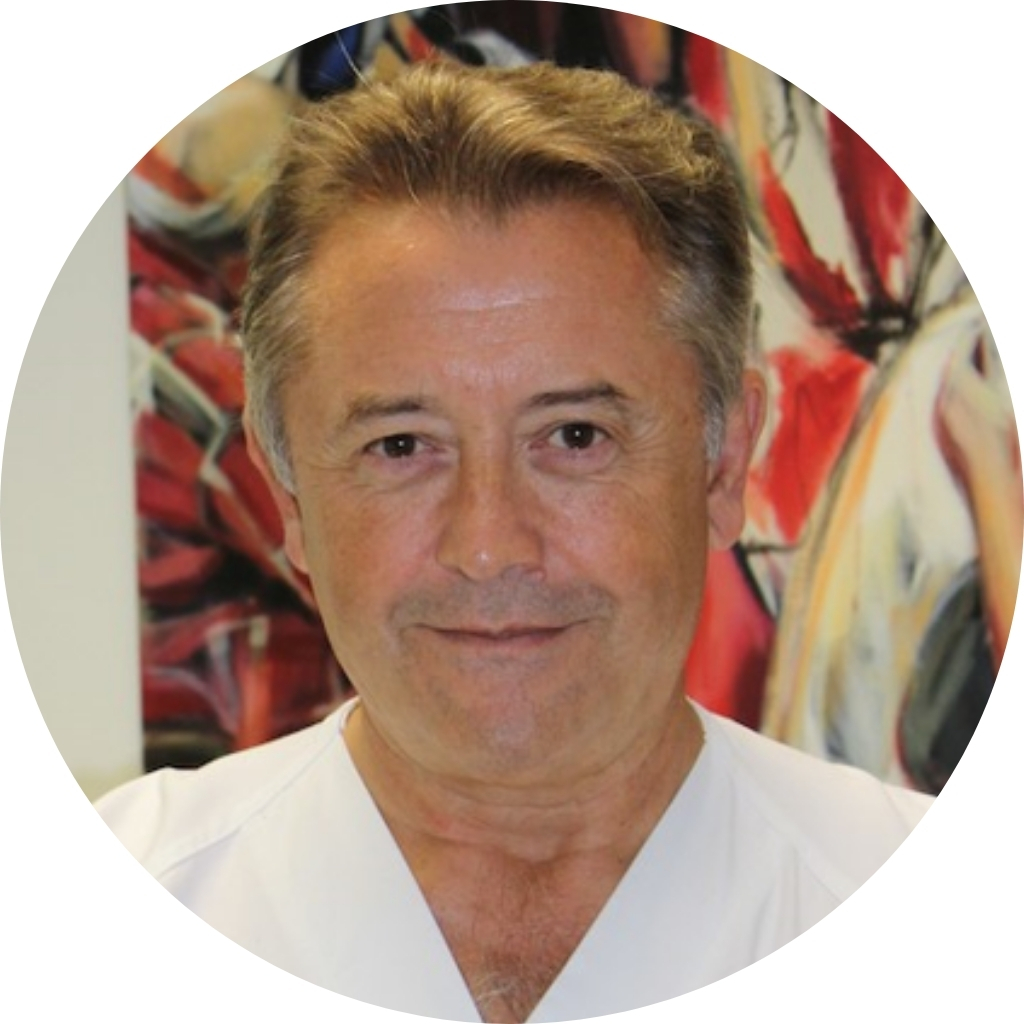ESOR & ESR Journals workshop
Advancing Excellence in Manuscript Review
esor/ESR workshop on
review of manuscripts
Programme Coordinator
Prof. Luis Marti-Bonmati
Editor-in-chief Insights into Imaging
09 – 10 September, 2024
Valencia, Spain
*deadline September 2, 2024
What to expect
This workshop is targeted at last-year residents and board-certified radiologists already involved in reviewing radiology manuscripts who are looking to improve, in a collaborative way, the most relevant skills to help authors produce the best papers. In an era where the precision, clarity, and innovation of imaging-related improvements’ dissemination are paramount, the role of a skilled reviewer has never been more crucial. This workshop is tailored to empower reviewers with advanced tools, insights, and methodologies to critically evaluate the design of radiology manuscripts.
This intense two-day programme is designed to update knowledge and skills in manuscript reviewing including: population description, recruitment, flowchart design, data splitting strategies, study designs and methodology, bias identification and control methods, Large Language Models and their impact on scientific publishing, creating a relevant bibliography and reviewing the references, graphical abstracts, essentials for figures/tables/illustrations, and reviewing revised manuscripts.
Renowned European editors will deliver a high-quality teaching programme, combining lectures and hands-on workshops.
Your host & Venue

Prof. Luis Marti-Bonmati
Titulations, etc.
Venue will be announced soon!
Venue
ADEIT Fundación Universidad-Empresa
Plaza Virgen de la Paz, 3
Ciutat Vella, 46001
Valencia, Spain
Co-Organizers
Prof. Ursula Reiter
University Hospital of Graz
Prof. Christian Loewe
Medical University of Vienna

highlights
- Interactive Sessions: Engage in live review sessions where you’ll apply new techniques to evaluate actual manuscripts (anonymized for privacy).
- Expert Panels: Hear from leading radiologists and seasoned editors on the nuances of evaluating radiological research and innovative design.
- Peer Review Simulations: Participate in mock review scenarios to practice constructive critiques and decision-making.
- Feedback Mechanisms: Learn how to provide feedback that is both helpful and encouraging to authors, fostering an environment of growth and improvement.
Benefits of Attending
- Elevate your Expertise: Become a more proficient and sought-after reviewer in the radiology community.
- Contribute to Science: Play a pivotal role in advancing radiological research by ensuring only the highest quality studies are published.
- Professional Development: Enhance your CV and professional standing with recognized workshop participation and potential future roles in editorial boards.
the Programme will be announced soon
Programme
*all times given in local time in Valencia, Spain
| 09:00 – 09:30 | Arrival and Coffee |
| 09:30– 09:55 | Welcome & Introduction – Prof. Luis Marti-Bonmati (Valencia, Spain)
|
| 09:55 – 10:20 | Fostering Ethical Reviewing – Prof. Jose M. Garcia Santos (Murcia, Spain)
|
| 10:20 – 10:45 | Role of the Reviewer – Prof. Rossano Girometti (Udine, Italy)
|
| 10:45– 11:00 | Short Break |
| 11:00– 11:25 | Evaluating Research – Prof. Francesco Sardanelli (Milan, Italy)
|
| 11:25– 11:50 | Fundamentals of Methodological Design – Prof. Francesco Sardanelli (Milan, Italy)
|
| 11:50 – 12:00 | Short Break |
| 12:00 – 12:45 | Workshops Prof. Luis Marti-Bonmati (Valencia, Spain) Francesco Sardanelli (Milan, Italy) |
| 12:45 – 13:45 | Discussion Prof. Luis Marti-Bonmati (Valencia, Spain) Francesco Sardanelli (Milan, Italy) |
| 13:45 – 14:45 | Lunch Break |
| 14:45 – 15:10 | Reporting Guidelines – Prof. Giulia Zamboni (Verona, Italy)
|
| 15:10 – 15:35 | Powerful Statistics – Dr. Caterina Monti (Milan, Italy)
|
| 15:35 – 16:00 | Bias Identification and Control Methods – Prof. Giulia Zamboni (Verona, Italy)
|
| 16:00 – 16:15 | Short Break |
| 16:15 – 17:00 | Workshops Prof. Giulia Zamboni (Verona, Italy) Dr. Caterina Monti (Milan, Italy) |
| 17:00 – 18:00 | Discussions Prof. Giulia Zamboni (Verona, Italy) Dr. Caterina Monti (Milan, Italy) |
*all times given in local time in Valencia, Spain
| 08:30 – 09:00 | Arrival and Coffee |
| 09:00 – 09:25 | What to Consider when Reviewing AI Papers – Prof. Daniel Pinto dos Santos (Frankfurt, Germany)
|
| 09:25 – 09:50 | Levels of Evidence – Prof. Luis Marti-Bonmati (Valencia, Spain)
|
| 09:50 – 10:15 | Large Language Models (LLMs) and Other Foundational Models – Prof. Daniel Pinto dos Santos (Frankfurt, Germany)
|
| 10:15 – 10:30 | Short Break |
| 10:30 – 11:15 | Workshops Prof. Daniel Pinto dos Santos (Frankfurt, Germany) Prof. Luis Marti-Bonmati (Valencia, Spain) |
| 11:15 – 12:15 | Discussion Prof. Daniel Pinto dos Santos (Frankfurt, Germany) Prof. Luis Marti-Bonmati (Valencia, Spain) |
| 12:15– 13:15 | Lunch Break |
| 13:15 – 13:40 | Sources of Information – Dr. Caterina Monti (Milan, Italy)
|
| 13:40 – 14:05 | Visual Approach – Prof. Rossano Girometti (Udine, Italy)
|
| 14:05 – 14:30 | What is Clinical Impact – Prof. Christian Loewe (Vienna, Austria)
|
| 14:30– 14:45 | Short Break |
| 14:45 – 15:30 | Workshops Dr. Caterina Monti (Milan, Italy) Prof. Rossano Girometti (Udine, Italy) Prof. Christian Loewe (Vienna, Austria) |
| 15:30 – 16:30 | Discussions Dr. Caterina Monti (Milan, Italy) Prof. Rossano Girometti (Udine, Italy) Prof. Christian Loewe (Vienna, Austria) |
| 16:30– 17:00 | Coffee Break |
| 17:00 – 17:25 | Editorial & Decision Making Process – Prof. Jose m. Garcia Santos (Murcia, Spain)
|
| 17:25 – 17:45 | Share & discuss your Feedback, Problems & Experiences as Reviewers Prof. Luis Marti-Bonmati (Valencia, Spain)Prof. Christian Loewe (Vienna, Austria) |
| 17:45 – 18:00 | Closing Remarks – Feedback – Prof. Luis Marti-Bonmati (Valencia, Spain) |
| 18:00 – 19:00 | Farewell |
Accreditation
Applications will be made to the European Accreditation Council for Continuing Medical Education (EACCME) for CME accreditation of this event.
Applications have been made to the European Accreditation Council for Continuing Medical Education (EACCME) for CME accreditation of this event.
This programme has been accredited by the European Accreditation Council for Continuing Medical Education (EACCME®) for a maximum of 13.0 European CME credits (ECMEC®s)
Certificates with CME credits will be issued only after participating in the course activities and completing an online evaluation form.
We work with impartiality and transparency. Find the steering committee disclosure forms here →
Learning Objectives
- Enhance Critical Analysis Skills: Deepen your ability to assess methodology, data presentation, and the overall coherence of radiology studies (scientific, reviews, positions, education).
- Promote Best Practices: Learn the best approaches in peer review specific to radiology, ensuring constructive, fair, and insightful feedback.
- Foster Ethical Reviewing: Emphasize the importance of ethics in reviewing, including confidentiality, objectivity, and conflict-of-interest identification.
- Networking: Connect with fellow radiology professionals, including Editors and Deputy Editors, to share experiences, challenges, and strategies for effective reviewing.
Fees
The registration fee includes only the ESOR & ESR JOURNALS WORKSHOP. Participants are responsible for their travel and accommodation arrangements themselves.
EUR 350 for ESR Members
EUR 400 for Non-Members
Please note that 10% VAT will be added during the registration process.
For your convenience, we have gathered a non-exhaustive list of hotels near the workshop venue:
Hotel Vincci Mercat (4*) |
Hotel Vincci Palace (4*) |
Hotel Vincci Lys (4*) |
SH Inglés (4*) |
SH Valencia Palace (5*) |
SH Colón Valencia (4*) |
Hotel & Spa MYR Plaza Mercado (4*) |
Hotel MYR Puerta Serranos |
One Shot Palacio Reina Victoria (4*) |
One Shot Colon 46 (3*) |
Hotel San Lorenzo Boutique |
Casa Clarita by SH Hoteles |
the world of radiology is yours
Apply now for a chance to go on one of our many one- or two-year fellowship around the world!
